How to Get Rid of Spotted Lanternflies
- Details
- Written by: Joanne Wallenstein
- Category: Health
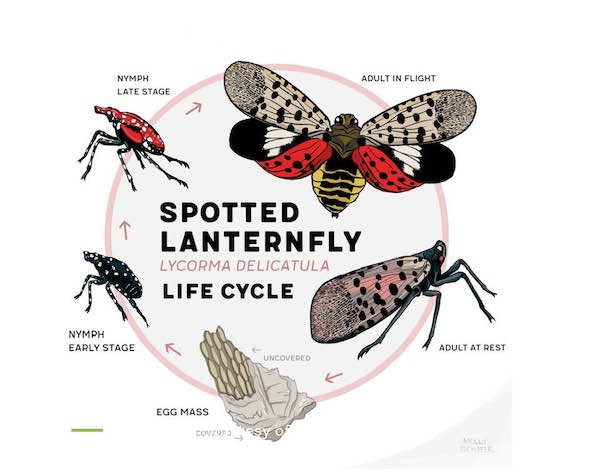 There’s no denying it. The invasive Spotted Lanternflies are here. Before they eat up our trees and gardens what can we do? Practically speaking, how do we eliminate these harmful pests?
There’s no denying it. The invasive Spotted Lanternflies are here. Before they eat up our trees and gardens what can we do? Practically speaking, how do we eliminate these harmful pests?
Here’s a list of helpful recommendations from the French and Pickering Creeks Conservation Trust French and Pickering Creeks Conservation Trust on how to get rid of the invaders:
Smushing the bugs is effective and the method that is least harmful to the environment. If the flies are on a hard surface, fly swatters and whiffle ball bats work. If you miss the first time, DON’T GIVE UP! Lanternflies jump GREAT the first time, not so good the second time, and then they lose energy. If you follow the bug, you will get it on the second or third try! Always try to come at the bugs from in front; they see better behind them. For the techies out there, there are special electric tennis rackets made for this – Zap-It, twin bug zappers – the first zap stops them from flying, then you can squash or zap again.
Smush again! If you are outside without your fly swatter, and you see one bug and want to smush it, this technique is foolproof (but not good if you are squeamish). Very, very SLOWLY, put one hand in front of the bug. Very, very SLOWLY, put one hand behind the bug. Very, very SLOWLY, bring your back hand towards your front hand until you have the bug trapped between your hands. You can then squish it, step on it, or drop it in a jar or tub of water and quickly put the lid on.
Another method for catching many adults on a tree or on the side of a house is to use a shop vac. A shop vac will suck them up quickly and they will be gone. If you don’t own a shop vac, you can buy a small bucket-sized one on Amazon or in many local stores.
The sticky paper plus hose method: If you have a tree with a bad infestation of lanternflies, wrap wide sticky paper or several strips of thinner sticky paper or inside-out duct tape around the bottom of the tree. Get out your hose or pressure washer and spray the bugs with water – or get out your leaf blower and spray the bugs with air – or knock the tree limbs with a broom – so they fall off the tree. They will scramble to climb back up the tree, and they will get caught on the sticky paper. You may need to replace the sticky paper if it starts to fill up with lanternflies. Once most of the bugs have returned to the tree and been captured, remove the paper from your tree and fold it back on itself. Never leave sticky paper unattended because it can harm beneficial insects and birds and other wildlife.
Bug Assault is a gun that shoots table salt at close range, and it works great on lanternflies. Here is a link to one that works: With older flies, the first shot may not kill them, but it will stun them, and then you can squish or step on. Air guns and BB guns with no BB’s also kill them! To quote: just pump 4 to 5 times, get really close to them and pow, blown to smithereens!!
Plant more milkw Experts suggest the removal of invasive Alianthus trees (Tree of Heaven) as they attract Spotted Lanternflies.Alinathus Tree, or Tree of Heaven is an invasive tree that attracts Spotted Lanternflieseed! It appears that the lanternflies are attracted to Common Milkweed. We find dead lanternflies on it every day. The lanternflies are new here, and they don’t know it is poisonous, so they eat it and it kills them. The poisonous sap also slows them down, so they are much easier to catch and smush in your hand. At the very least, you will be helping save the Monarch Butterfly and helping other pollinators, who love the flowers.
Experts suggest the removal of invasive Alianthus trees (Tree of Heaven) as they attract Spotted Lanternflies.Alinathus Tree, or Tree of Heaven is an invasive tree that attracts Spotted Lanternflieseed! It appears that the lanternflies are attracted to Common Milkweed. We find dead lanternflies on it every day. The lanternflies are new here, and they don’t know it is poisonous, so they eat it and it kills them. The poisonous sap also slows them down, so they are much easier to catch and smush in your hand. At the very least, you will be helping save the Monarch Butterfly and helping other pollinators, who love the flowers.
If you are dying to spray them with something, these pesticides are endorsed by Penn State as excellent at killing them on contact, but they don’t stay long on surfaces, so they should do the least harm to the beneficial insects we need: Purely Green, Spotted Lanternfly Killer 2 (active ingredient essential oils); Bonide Neem Oil (active ingredient Neem); Garden Safe Multi-Purpose Garden Insect Killer, Natria Insect Mite and Disease Control (active ingredient natural pyrethrins; and Garden Safe Insecticidal Soap (active ingredient insecticidal soap).
Don’t remove your spider webs! Spiders are catching lanternflies in their webs every day. Some of our spiders are learning to eat them. They will do lanternfly removal for you.
Remove Tree of Heaven from your property and replace it with a native tree. There is a strong relationship between Tree of Heaven (Ailanthus) and the Spotted Lanternfly – they love it. Tree of Heaven is an invasive, noxious plant that produces ailanthone, a chemical which has been reported to possess herbicidal activity similar to glyphosate (Round-Up) and paraquat. It prevents native plants from growing around it. Removing Tree of Heaven from your property is always a good idea. You may need a professional to do this.
When trying to handle a nymph: Leave out trays of water. Some people add some lemon oil. For some reason, they climb in the tray and drown. Our use The Tupperware Tub method – you can catch oodles of nymphs in a very short time. You will need a Tupperware tub, margarine container, or large yogurt container with a tight-fitting lid. Put a couple inches of a 50/50 mix of vinegar and water in the bottom. Hold the tub under a branch on which there are nymphs. Tap the branch from above, the nymphs fall in the liquid, slap the lid on, and the nymphs will drown within 15 seconds. You can save the liquid for next time. Remember, never pour this liquid on the ground – pour it down your garbage disposal or toilet.
Spotted Lanternfly Eggs Masses start appearing in early fall. They are grey or brown globby 2-4″ smears that look a bit like old chewing gum on trees, cement blocks, rocks, cars, houses, barbecue grills – any hard surface. The good news is this is the easiest phase to get rid of – you can scrape them off using a plastic card, like a credit card or a putty knife. Scrape them into a small baggie or container filled with isopropyl alcohol or hand sanitizer. This is the most effective way to kill the eggs, but they can also be smashed or burned. Remember that some eggs will be laid at the tops of trees and may not be possible to reach.
Do you have ideas on how to get rid of lantern flies? Post them in the comments section below:
Treating Joint Pain in a Natural Way
- Details
- Written by: Joanne Wallenstein
- Category: Health
 Contributed by Dr. Nicole Solomos, Lifestyle Medicine. The original version of this article was published in Health Matters, a White Plains Hospital publication.
Contributed by Dr. Nicole Solomos, Lifestyle Medicine. The original version of this article was published in Health Matters, a White Plains Hospital publication.
Nagging joint pain can affect not just your body, but also your mind and your mood. As a result, many people suffering from joint pain do so by remaining relatively sedentary, afraid that engaging in physical activity will only exacerbate their situation.
However, as a practitioner of lifestyle medicine, I strongly recommend that everyone – and not just those with joint pain – follow certain regimens that can help them change their lives for the better. Lifestyle medicine is a medical specialty that uses therapeutic lifestyle interventions as a primary technique in treating chronic conditions.
For the purposes of this article, I will be speaking in generalities; obviously, each individual is facing their own situation, and some are more capable of making these adjustments than others. Nevertheless, following these recommendations can help those with joint pain feel refreshed, renewed, and more able to deal with their challenges.
Regular physical activity/exercise. This cannot be stressed enough. Such activity can keep the muscles around affected joints strong, slow the loss of lean mass, and in some cases can help control joint swelling and pain. In addition, regular activity can help restore lubrication to the cartilage of the joint, thereby reducing stiffness and pain.
This proposal may strike some – especially the elderly and/or those with severe joint pain – as difficult to achieve. But that is not necessarily the case. Strength training, which has not been emphasized enough in our culture, can be done at any age (it’s never too late to start!) and doesn’t necessarily mean lifting large barbells or dumbbells over your head repeatedly. Body weight exercises like push-ups or modified squats can be a great way to start; there is a host of exercises utilizing chairs for extra support. Resistance training, done with resistance bands, sandbags, or even some household items are also recommended, as are core exercises like planking or others that involve lying on your back.
Remember: strength and mobility can be more important than emphasizing one’s weight or body size; they can even go hand in hand. You aren’t looking to compete in the next Iron Man; you are looking to get more fit and relieve the stress on your aching joints.
Nutrition. Defining what makes for a “proper” nutrition plan can be complicated; there is no one way that’s right for everyone. For that reason, I recommend that each person comes up with their own customized eating plan rather than relying solely on someone else’s suggestions. The latter will usually prove to be unsustainable, and you might simply give up after a few weeks or months.
That said, I consider the Mediterranean diet to be the gold standard, with its emphasis on plant-based foods and healthy fats; details can be found here. Processed foods should be avoided, and you should be aware that your preferred intake of protein will vary as you get older, especially for women; those in peri- or post-menopause should be eating differently than those who are pre-menopause.
Risky substances. We all know (or should know) that smoking is a habit that should not be indulged. The same is true for alcohol; despite its normalization in our society – how many beer commercials do you see during a televised sporting event? – I feel that alcohol should be cut out of one’s life entirely. I realize that isn’t a particularly popular notion, but if you can’t keep it down to 0 drinks a week, try to limit it to no more than two drinks a day for men and no more than one drink a day for women, as the CDC suggests.
Caffeine is also a risky substance. Again, moderation is key; I feel that a single cup in the morning should be sufficient. Otherwise, you may be prone to feeling jittery/nervous, dehydrated, and/or having an increased heart rate. Too much caffeine or alcohol can have a negative impact on your sleep – and, thus, on your joint pain.
Sleep. An adequate amount of sleep allows your body to maintain healthy brain function and good physical health. Joint pain can result in restless sleep – without movement, your joints can stiffen during the night – and a lack of sleep can aggravate the pain. The exercises and other healthy habits listed above can help alleviate this problem.
Less than the recommended 7 to 8 hours a night may increase your chances of not only exacerbating joint pain, but also in developing chronic health problems.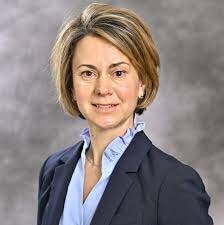 Dr. Nicole SolomosWater. Drinking enough water each day is one of the keys to sustaining a healthy lifestyle. The general guideline here is to take in at least 64 ounces of water a day (age, sex and activity levels may alter that recommendation). Water helps in maintaining healthy tissue as well as healthy joints. Water also is an excellent alternative to alcohol for a number of reasons; in addition, it can help fill you up, thus eliminating the urge for between-meal snacks.
Dr. Nicole SolomosWater. Drinking enough water each day is one of the keys to sustaining a healthy lifestyle. The general guideline here is to take in at least 64 ounces of water a day (age, sex and activity levels may alter that recommendation). Water helps in maintaining healthy tissue as well as healthy joints. Water also is an excellent alternative to alcohol for a number of reasons; in addition, it can help fill you up, thus eliminating the urge for between-meal snacks.
Following these guidelines will probably not eliminate your joint pain, especially if you have a chronic condition like arthritis. But it can definitely help alleviate at least some of it, which in turn will result in feeling both happier and healthier.
Dr. Nicole Solomos is board-certified in Sports Medicine/Family Medicine and in Lifestyle Medicine. To make an appointment, call 914-849-7075 (Somers) or 914-631-7777 (Hawthorne and Yonkers).
Tips for Men’s Health
- Details
- Written by: Joanne Wallenstein
- Category: Health
 This article was written by Dr. Matthew Zeppieri, Family Medicine
This article was written by Dr. Matthew Zeppieri, Family Medicine
Remembering to prioritize your physical and mental health can be challenging, especially while balancing work, social life, and family. Despite this, it is important for men to follow some basics in order to remain healthy and prevent future illness.
1. Attend Annual Physicals
Given the high likelihood of prostate and colon cancer in men, it is important to schedule annual physicals. In addition to prostate cancer, colorectal cancer is more common in men. While men and women are essentially equally at risk for colon cancer, men are more likely to get rectal cancer, according to the Centers for Disease Control and Prevention (CDC). Both prostate and colorectal cancer screenings can be critically important, as the earlier those diseases are detected, the better the chances of successfully treating them.
With patients under 40, I inquire if they are experiencing any typical prostate cancer symptoms, including multiple trips to the bathroom at night to urinate; general frequency and urgency associated with urinating; and hesitancy or weakening of the urine stream. Other concerning indications include unexplained fevers and/or unintentional weight loss.
With patients over 40, I recommend conducting a Prostate Specific Antigen (PSA) screening and a digital rectal exam. Although some patients are more resistant to these procedures that others, there is value in conducting these screenings and catching these illnesses early on.
With colon cancer, since we are finding an increase in cases of younger men, the recommended age for a colonoscopy has been lowered from 50 to 45. In addition, if an individual has a family history of colon cancer, it is recommended that a screening be done 10 years prior to when that family member’s diagnosis took place.
2. Active Lifestyle
The American Heart Association recommends 150 minutes of moderate exercise weekly. This type of exercise includes any activity other than sitting at a desk – including, but not limited to, household chores or going for short walks.
Another option to maintain an active lifestyle is 75 minutes of vigorous exercise weekly. This type of exercise includes a more intense regimen like jogging, swimming, playing racquetball, etc. With both of these options, the overarching goal is to remain active regardless of the ways in which that activity is accomplished.
3. Balanced Diet
Maintaining a balanced diet and consuming the appropriate amount of calories can be difficult, given the multitude of different diet options and discussions around calorie intake. Daily calorie intake recommendations are 2,400 for those aged 21 to 40; 2,200 for those aged 41 to 60; and 2,000 for men aged 61 and older. To lose one pound a week, those numbers can be decreased by 500 calories.
I recommend accurately counting your calorie intake. It is important to be honest with your physician and yourself when calorie counting, as inaccurate reporting does not help your physician – or, more importantly, yourself.
A diet that I and many other physicians recommend is the Mediterranean diet, which emphasizes plant-based foods and healthy fats. Additional details can be found here.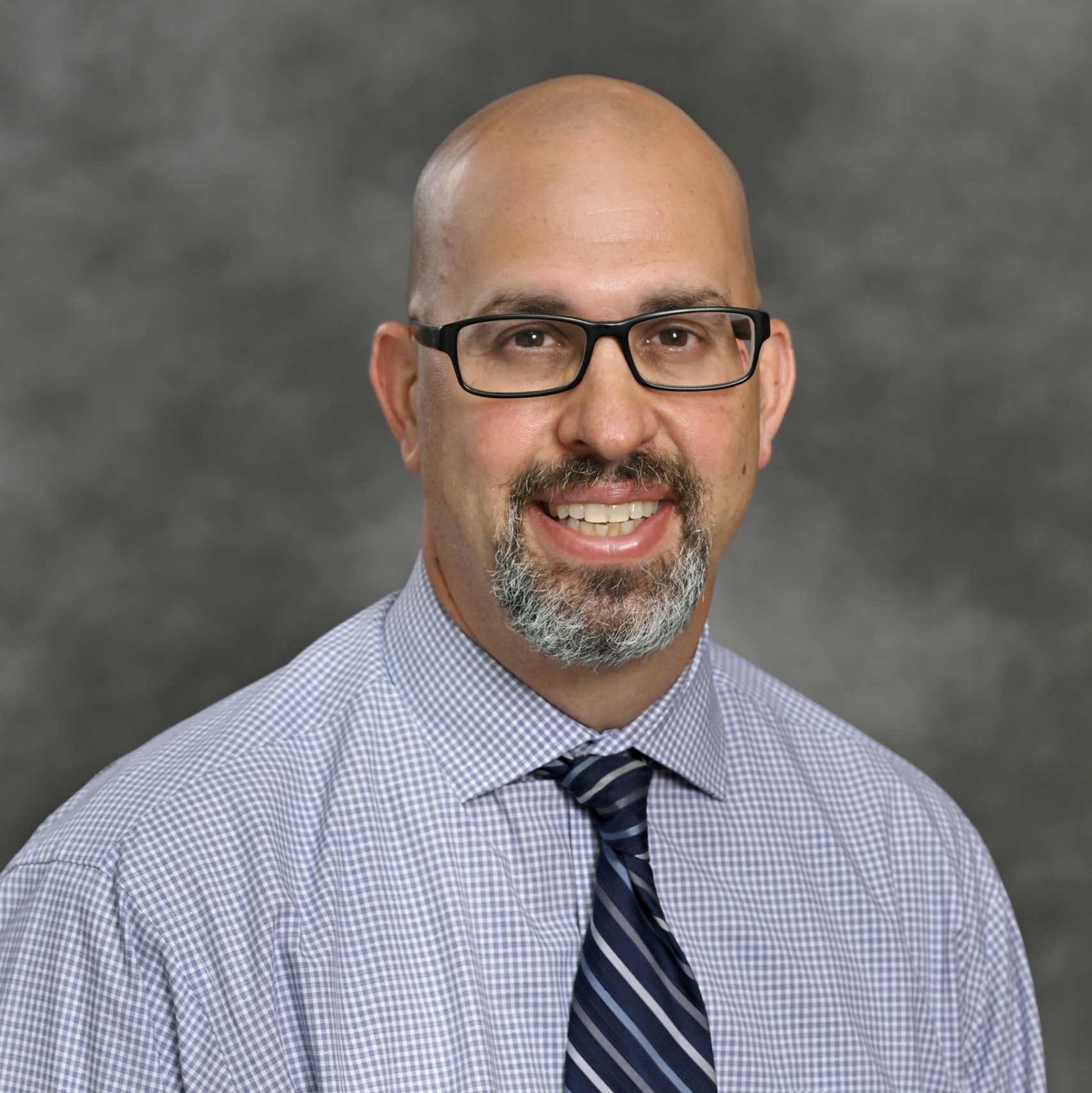 4. Monitor Mental Health
4. Monitor Mental Health
Checking up on the mental health of my patients is a priority. Every time I see a patient, I always inquire about feelings of depression, anxiety and stressors in their lives. Given the still-present stigma around their emotional needs, it can be hard for some men to openly discuss their mental health with their physician. Despite this, it is imperative to have these discussions with your physician, instead of allowing an illness to remain untreated.
Again, it is vital to prioritize receiving your annual physical and age-appropriate screenings as a preventative measure to remain safe and healthy. If you have not already done so, I urge you to schedule any visits that you may have let slip by; your doctor, and your body and mind, will thank you.
Dr. Matthew Zeppieri is a family medicine physician at White Plains Hospital Physician Associates of New Rochelle. For an appointment, call 914-235-8224.
Living with Lupus: Symptoms, Diagnosis, and Effective Treatment Strategies
- Details
- Written by: Dr. Petros Efthimiou, Rheumatology
- Category: Health
 Systemic Lupus Erythematosus (SLE), a.k.a “lupus,” has been back in the news lately, with actress/singer Selena Gomez and vocalist Toni Braxton making headlines for their experiences with the autoimmune disease. Earlier this year, Gomez began openly discussing the effects of lupus, which she was diagnosed with in 2015; more recently, Braxton, who was diagnosed in 2008, has publicly shared her experience with lupus and one of its major complications, lupus nephritis, where the disease affects the kidney.
Systemic Lupus Erythematosus (SLE), a.k.a “lupus,” has been back in the news lately, with actress/singer Selena Gomez and vocalist Toni Braxton making headlines for their experiences with the autoimmune disease. Earlier this year, Gomez began openly discussing the effects of lupus, which she was diagnosed with in 2015; more recently, Braxton, who was diagnosed in 2008, has publicly shared her experience with lupus and one of its major complications, lupus nephritis, where the disease affects the kidney.
The Mayo Clinic defines lupus as Lupus can be defined as Lupus is “a disease that occurs when your body’s immune system attacks your own tissues and organs (autoimmune disease). Inflammation caused by lupus can affect many different body systems – including your joints, skin, kidneys, blood cells, brain, heart and lungs.”
With May being Lupus Awareness Month in the U.S., it is worth discussing the potential symptoms of, as well as treatments for, this disease whose name might be familiar but whose details may be murky for many readers. 
The Lupus Foundation of America (LFA) reports that about 1.5 million Americans have the disease, with an estimated 16,000 new cases diagnosed each year. Worldwide, over five million people have some form of lupus. While it is most common in women between the ages of 18 and 45, it can also affect men; in addition, the disease currently affects an estimated 5,000 to 10,000 children.
Lupus can affect almost any organ in the human body; not just the kidney, but also the skin, blood, joints, heart, lungs, and brain. Fatalities directly attributable to the disease are few; with close follow-up and treatment, 80-90% of people with lupus can expect to live a normal life span, according to the LFA.
There is no cure for lupus, and the exact cause(s) of contracting it are yet to be conclusively identified. However, there appears to be a genetic factor at play; while no single gene or gene group has been proven to cause the disease, it can appear in some families. People of African, Asian, Pacific Island, Hispanic/Latino, Native American or Native Hawaiian descent are more susceptible to lupus, again indicating a possible genetic factor.
Common triggers of the disease include infection or injury; overwork/lack of sleep; and prolonged exposure to the sun or fluorescent/halogen light. Symptoms may include:
• Muscle and joint pain
• Prolonged fever
• Rashes
• Chest pain
• Hair loss
• Sun or light sensitivity
• Kidney issues
• Mouth sores
With all of this uncertainty, how can one tell if they do have lupus? The prolonged presence of these symptoms – especially if one more than one is present at a time – should be taken seriously. A visit to your physician should quickly be arranged; blood and urine tests can screen for the disease, and you may ultimately need to be referred to a rheumatologist, who can confirm the diagnosis and prescribe a treatment, tailored to your clinical presentation.
If you are found to have lupus, there are many treatments available. Depending on the person and the severity of the case, these range from antimalarials, such as hydroxychloroquine, to the corticosteroid prednisone, all of which can help reduce swelling, tenderness and pain. Immunomodulators such as azathioprine and mycophenolate can also prove effective, and for severe cases, targeted biologic immunotherapy may be recommended. 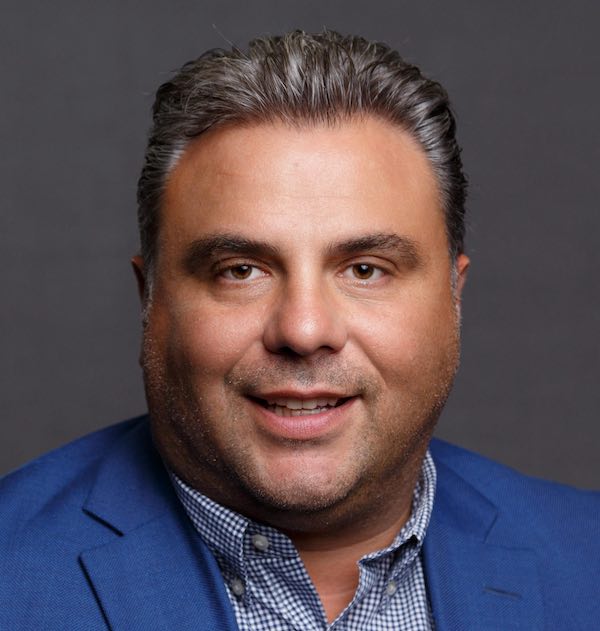 Dr. Petros Efthimiou In any event, close supervision by a rheumatologist is highly advised. They can help find the right approach to the disease for you and guide you on what may be a difficult – but not necessarily life-threatening – journey.
Dr. Petros Efthimiou In any event, close supervision by a rheumatologist is highly advised. They can help find the right approach to the disease for you and guide you on what may be a difficult – but not necessarily life-threatening – journey.
Dr. Petros Efthimiou is a board-certified rheumatologist and a published lupus expert at WPHPA of Larchmont. For an appointment, call 914-849-7400.
Relief Without the Sting: How Allergy Pills Are Changing the Game for Treatment
- Details
- Written by: Dr. Angela Chan
- Category: Health

Seasonal allergies can be irritating not just for the upper airways, but also for the eyes. Seasonal allergic rhinitis (hay fever) is an allergic response to airborne pollens such as trees, grasses, and weeds, which can be particularly bothersome as it spans from early March to the first frost, here in the tri-state area.
According to the Asthma and Allergy Foundation of America, in 2021 some 81 million people in the U.S. were diagnosed with seasonal allergic rhinitis – equal to about 26% (67 million) of adults and 19% (14 million) of children.
The “seasonal” part of the equation can be defined by these simple facts: Tree pollen is common in spring; grass pollen in late spring into summer; and ragweed pollen in late summer into fall. And as unpleasant as dust mites and cockroaches sound, these allergens, along with animal dander, are present year-round, and are considered triggers for perennial symptoms.
Once diagnosed, allergic rhinitis treatment options include avoidance (if possible) and eliminating or decreasing your exposure to the triggers. This can of course be difficult to achieve in the case of pollen unless one lives roughly three quarters of the year indoors. Alternatively, with regards to dust mites, no matter how clean your home is, it is probably still a little dusty.
Treatments that patients initially rely on for their allergies include antihistamines (oral, intranasal, ocular), and intranasal corticosteroids, which provide temporary symptomatic relief. Allergen immunotherapy (also known as allergy shots) has been shown to be effective in treating patients with allergic rhinitis. Unlike allergy medications, allergy shots modify the underlying cause of the disease and can provide long-term benefits. However, patients can find it challenging to commit to the recommended allergy regimen: weekly injections for about six months to build their tolerance to the allergen(s), followed by a maintenance schedule of once monthly injections for the next three to five years.
Fortunately, there is another type of treatment available: sublingual immunotherapy (SLIT). This involves allergy tablets and has emerged as an effective, safe, and possibly more feasible alternative to allergy shots for some individuals. Currently in the U.S., the FDA has approved four allergy tablets: two are directed at grass pollen (Oralair and Grastek); one is for short ragweed (Ragwitek); and one is for dust mites (Odactra). Oralair, Grastek, and Ragwitek are approved for children 5 years old and above. Odactra is approved for children 12 years old and above.
The tablets are placed under the tongue for at least one minute, then swallowed as they dissolve. They are generally taken once a day during therapy. The dosing regimen varies depending on the targeted allergen, where one could benefit from starting SLIT several months before the season (as with pollens), while others may benefit from year-long SLIT (as with dust mites). Treatment typically is continued for around three years for continued effectiveness.
Side effects of allergy tablets are usually mild for all ages: itchy mouth (if present, would occur early in treatment and usually is transient) and, less commonly, an upset stomach. Severe allergic reactions are rare; however, as there is the possibility of severe allergic reactions in patients receiving immunotherapy (whether allergy tablets or allergy shots), for safety purposes, an epinephrine autoinjector is always prescribed.
SLIT is only appropriate to consider for certain patients who have allergic rhinitis to the allergen contained in the allergy tablet of choice. As such, patients with multiple allergies would likely benefit from allergy shots instead.
Knowing that they may be able to “breathe easier” without injections is an attractive option for many patients; however, whether these tablets are adequate or recommended for you is a matter for discussion with an allergist.
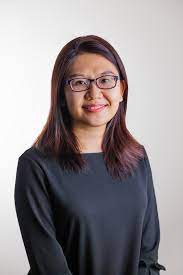
Dr. Angela Chan is a board-certified pediatrician and allergist-immunologist at the Scarsdale Medical Group in Harrison. For an appointment, please call 914-723-8100.







